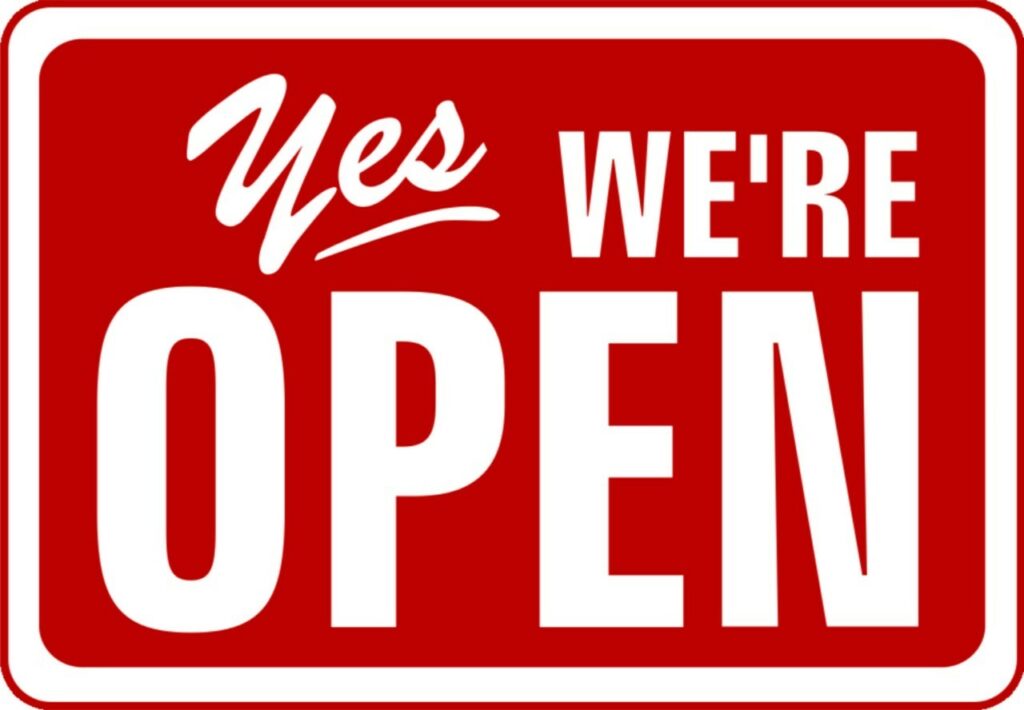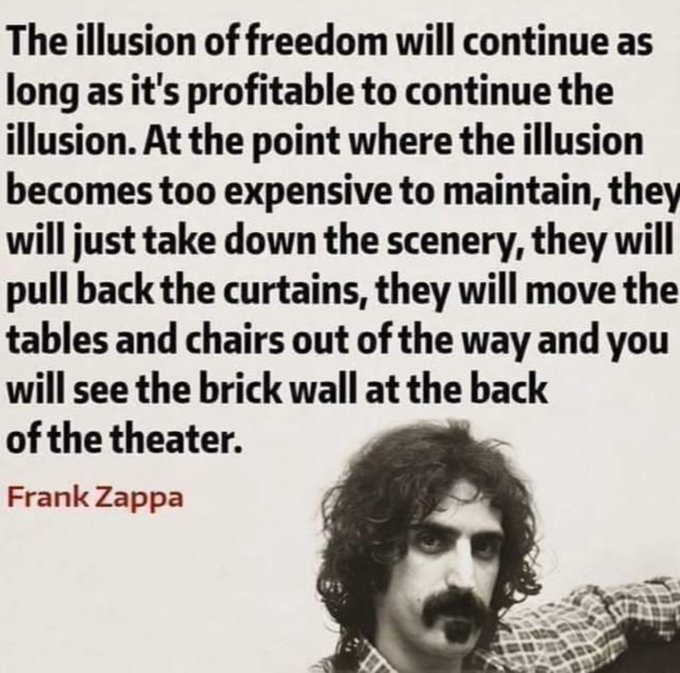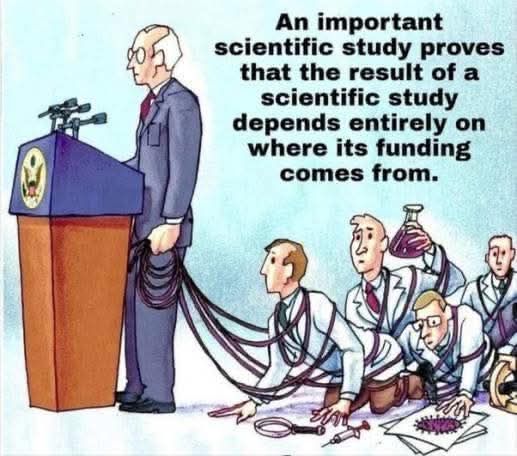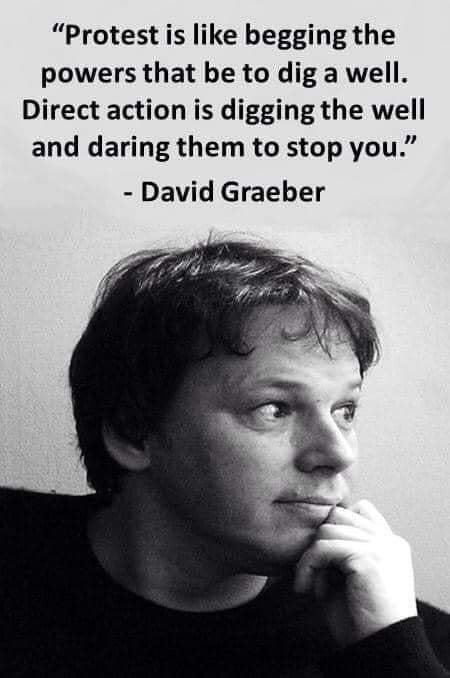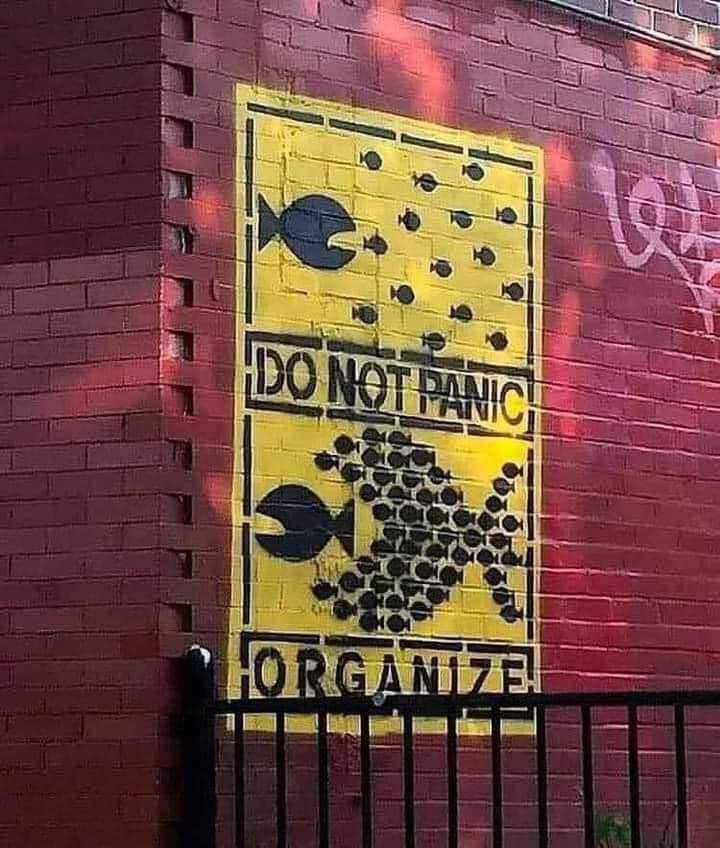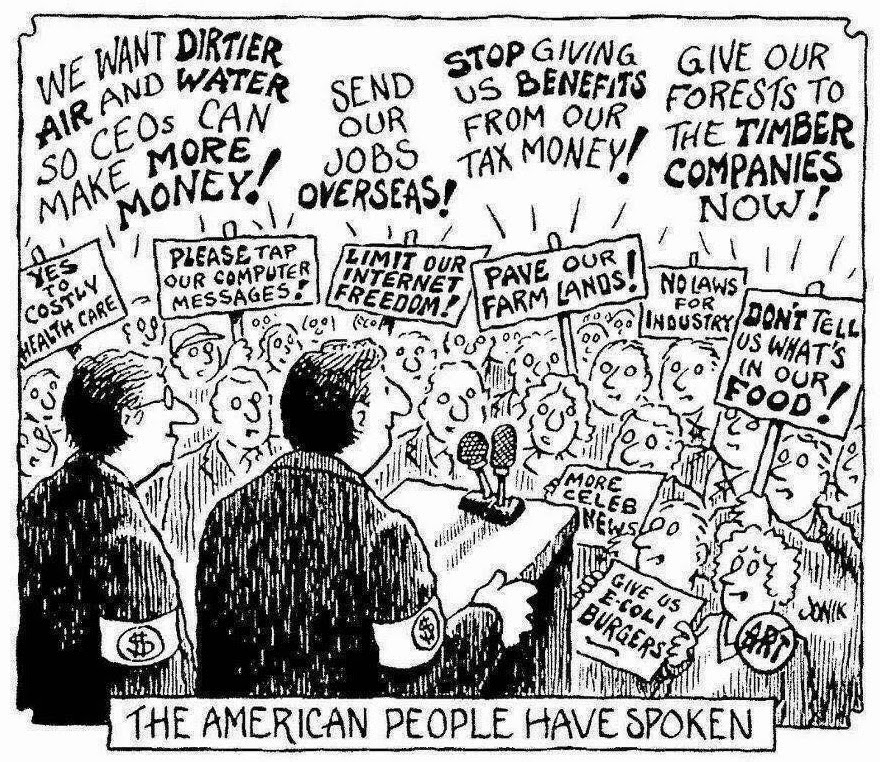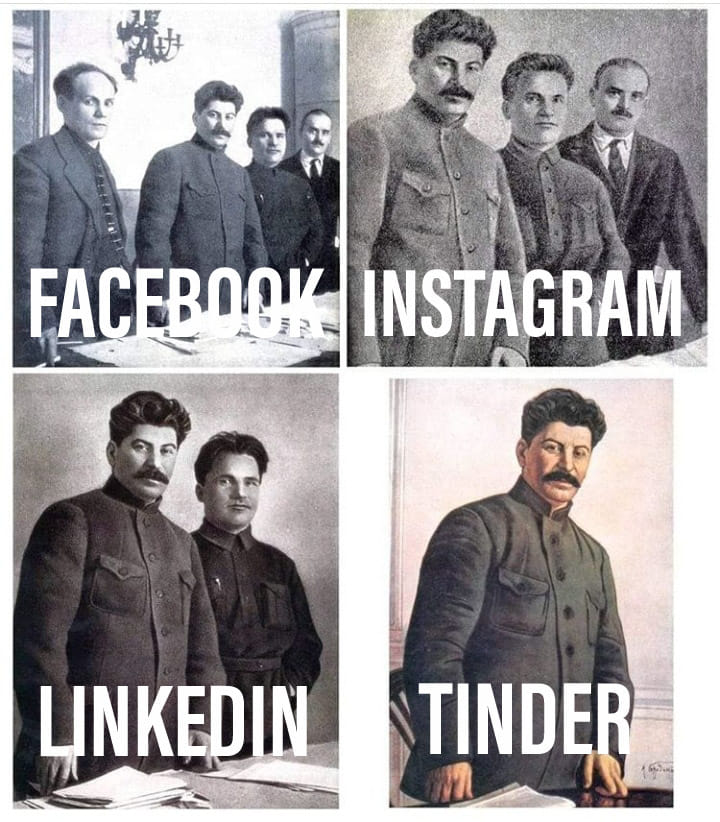We need to talk about a circler familiar mess: when movements that are open, non-hierarchical, and anti-authoritarian end up recreating the problems they set out to escape. This is the “dogma of anti-dogma”, and you see it everywhere, the example I am using here is in groups like the Rainbow Gatherings.
The Rainbow Gatherings have deep roots in 1970s counterculture. Born from the peace and ecology movements, it emerged with a back-to-the-land, anti-establishment, peace-and-love spirit. Think spiritual communes, consensus meetings, and gatherings deep in the forest – far from the control of the state or system. Sound familiar? It mirrors much of “native” internet culture and resonates strongly with what we’re trying to grow through the #openweb today, in projects like the #OMN.
In the 50-year history of Gathering’s, there are no leaders, no money, no official permissions. People just show up. Communal kitchens are built, spaces are created for kids, elders, ceremonies, workshops. At the heart is the “Open Centre,” where anyone can speak, sing, or simply be. It’s grassroots in its purest form. When it balances, it becomes a lived example of radical inclusivity and cooperation. But as in any movement, issues emerge, beneath the surface freedom lie 50 years of mythos and informal traditions shaping this nomadic utopia.
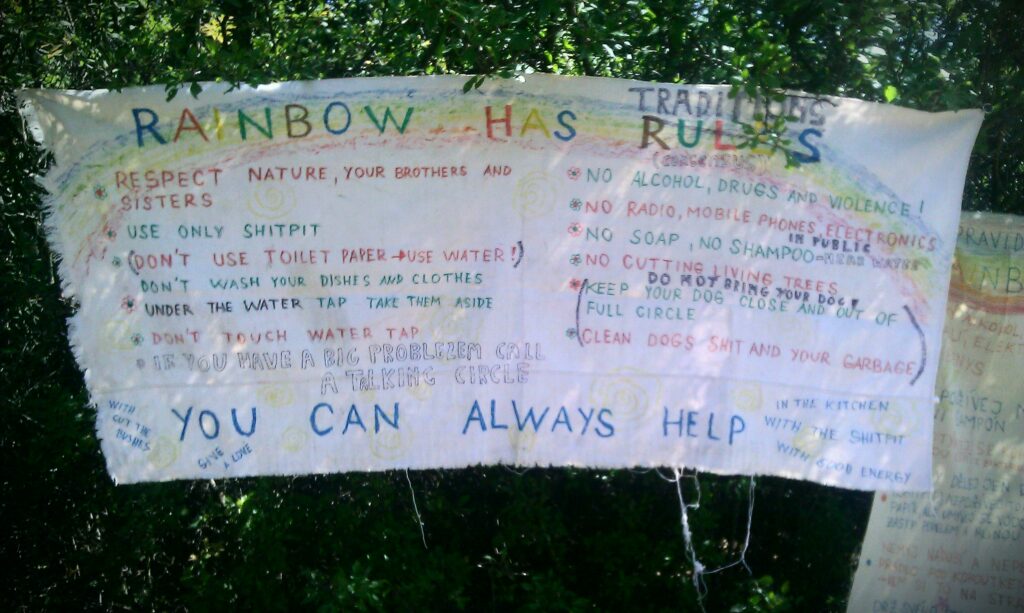
This openness recurringly becomes a tangled mess for more vertical-minded people. While there’s no formal leadership, some long-timers – “elders” of any age – naturally hold more sway. And while there are no written laws, there’s a strong social tradition to follow certain paths and perform a kind of functional “openness.” When more #mainstreaming folks arrive and try to “suggest” (read: impose) better structures or force their way into consensus processes, the friction can soon become dysfunction. Often, after creating much mess, their well-meaning input ends up having to be set aside, in #OMN terms #rolledback.
Balancing this is active openness – it’s about pushing back against #mainstreaming orthodoxy being imposed without consent, without care. That tension mirrors what we’ve seen again and again in #mainstreaming “horizontal” movements, from Occupy camps to DIY tech spaces to alt-social networks. The desire to avoid hierarchy doesn’t eliminate power – but in a recurring circle it risks making it invisible. The problem isn’t structure itself, it’s unaccountable structure.
With the #OMN (Open Media Network), we face this contradiction head-on. We draw on the “native” mythos of the #4opens – Open Data, Open Source, Open Standards, Open Process – as living traditions. Not just to #KISS build tools and platforms, but to build trust networks. We’re not pretending hierarchy doesn’t exist. We aim to make it visible, accountable, and, crucially, temporary. It’s not only about flattening decision-making, but ensuring it flows through real human relationships, not hidden power or #geekproblem black-box tech.
Rainbow Gatherings walk a nomadic path, grounded in mutual care, shared meals, and rich social ritual. When we reboot the #openweb, we have to learn from that. Radical inclusivity isn’t just about keeping the doors open – it’s about building shared social mythos and working traditions. And it’s about staying alert to how exclusion creeps back in: through silence, through pressure, and often through the #mainstreaming crowd who refuse to let go.
Movements need memory, they need culture, but they also need self-awareness and space for dissent – space to reflect on the paths we’re walking together. A better #Fediverse, a real #openweb, has to be built by communities that can see their own shadows, name their own contradictions, and keep evolving together.
Because we don’t just need freedom from the state or the #dotcons. We need freedom from our own dogmas. The #OMN isn’t only about media, it’s about building the social tech, the soil where openness can grow, thrive, and renew. And it needs compost – not just as metaphor.
#OMN #4opens #RainbowGathering #OpenWeb #AltTech #ActivistTech #Dogma #AntiDogma #IndymediaBack #TrustNetworks #MakeHistory #Fediverse
